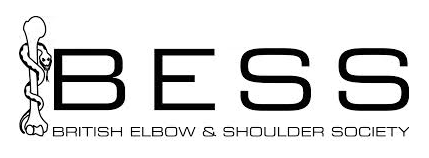Are you suffering from shoulder pain or general discomfort in the upper arm? Rotator cuff injuries are a common cause, affecting everyone from athletes to those just going about their day. A rotator cuff injury can significantly impact your mobility and quality of life. This post answers the top 10 questions about rotator cuff injuries, covering symptoms, diagnosis, and treatment options like surgery and physical therapy.
1. What is the rotator cuff?
The rotator cuff is a group of muscles and tendons surrounding the shoulder joint. It stabilises the shoulder and allows for a wide range of movement. The rotator cuff consists of four muscles; 1. Subscapularis, which moves your arm inwards, 2. Supraspinatus, which lifts your arm upwards, 3. Infraspinatus and 4. Teres Minor, which moves your arm outwards. A tear or damage to any of these muscles or their tendons will usually lead to pain, weakness, and limited shoulder mobility.
2. What causes rotator cuff injuries?
There are several common causes of rotator cuff injuries, including acute trauma, (such as a fall onto an outstretched arm), overuse, or degeneration due to aging. Risk factors for rotator cuff injuries include repetitive overhead movements (common in sports like tennis or swimming), heavy lifting, and previous shoulder dislocations.
3. What are the symptoms of a rotator cuff injury?
Rotator cuff injury symptoms can vary. You might feel shoulder pain, especially when raising your arm or reaching behind you. Shoulder weakness and limited movement are also common, as is nighttime pain. Everyday tasks like brushing your hair or lifting a mug of tea, may become difficult or awkward.
If you have ongoing shoulder pain or weakness, it’s important to get it assessed and get a diagnosis from a shoulder specialist to see if it’s a rotator cuff tear or something else.
4. How is a rotator cuff injury diagnosed?
To diagnose a rotator cuff injury, I usually start with taking a detailed history of how you use your arm, and the events that led up to the injury. I would then examine your arms, checking for shoulder movements, strength, and areas of pain.
During the examination I check for tenderness and weakness in certain shoulder movements. The “empty can” or “drop arm” tests to see how well your muscles are working.
Next, it is useful to get some radiological imaging such as an X-ray, MRI, or ultrasound to see if there is a tear or if it is just symptoms related to impingement syndrome (subacromial bursitis).
5. What is the treatment for a rotator cuff injury?
Treatment will depend on the severity of damage. If the cuff is not torn, then in many cases, physiotherapy and rotator cuff exercises are enough to strengthen the muscles, improve flexibility and reduce pain. Steroid injections can be used to reduce inflammation and provide pain relief. For more severe injuries, particularly those involving partial tears or complete tendon ruptures, rotator cuff surgery may be necessary.
6. What are the surgical treatment options for a rotator cuff tear?
An effective surgical option is arthroscopic cuff repair, which is minimally invasive (keyhole) surgery that uses tiny incisions to pass a camera and instruments into the joint to repair the torn tendon. This usually results in faster recovery times, less postoperative pain, and less complications compared to open surgery.
If there is further damage in the shoulder such as a labral tear, this can be repaired at the same time. The labrum is a ring of cartilage that surrounds the bony socket and is often torn in shoulder dislocations, or if there has been significant trauma to the shoulder.
7. Can physiotherapy help with rotator cuff injuries?
Depending on the extent of the injury, physiotherapy alone may be sufficient to treat your symptoms. Working with a physiotherapist helps improve shoulder strength, flexibility, and range of motion. Physiotherapists will guide you through shoulder rehabilitation exercises that strengthen the tendons and surrounding muscles, which is key to preventing future injuries.
However, if the injury is more severe and surgery is needed, a postoperative physiotherapy program will still be needed to ensure a full recovery.
8. What complications can arise from rotator cuff injuries?
Although many rotator cuff injuries heal well with physiotherapy, there can be complications, such as when the shoulder becomes stiff and painful to move, this is known as adhesive capsulitis or frozen shoulder. Additionally, untreated rotator cuff injuries may lead to chronic pain or tendon degeneration over time. In more severe cases, a rotator cuff tear can lead to arthritis in the shoulder joint , at which stage, shoulder replacement is the only option available to reduce pain.
9. What is the recovery process for rotator cuff surgery?
Recovering from rotator cuff surgery depends on how severe the tear was and the type of procedure you had. Typically, you’ll need to wear a sling full time, including at night, for four weeks to protect your shoulder while it begins to heal. After that you can take the sling off for periods of time at home, but still wear it when you go out.
After six weeks you can remove the sling entirely. Physiotherapy is a key part of recovery, helping you regain strength and mobility in your shoulder joint. Most people can get back to their usual activities within three months, but full recovery may take from six months to up to a year.
10. Are there any long-term effects of rotator cuff injuries?
With proper treatment, most people recover fully from cuff tears and regain full use of their shoulders. However, there can be long-term effects, especially for those who experience chronic shoulder pain or who have severe, untreated tears. Some individuals may develop long-term shoulder problems, including reduced range of motion or weakness, even after surgery.
Arthritis in the shoulder joint may also develop over time, particularly if the injury has caused cartilage damage. If left too long, the muscle shrinks and can turn into fat, at which point it is then irreparable.
If you think you might have a rotator cuff injury, it’s important to get a proper diagnosis and begin treatment right away. Whether your injury requires surgery or simple physiotherapy, tackling the problem early will greatly improve your chances of a smooth recovery.
London-based Orthopaedic Surgeon & Shoulder Specialist
Struggling with shoulder pain that won’t go away? I can help.
I’m Susan Alexander, a Consultant Shoulder Surgeon based in London, specialising in conditions like rotator cuff tears, frozen shoulder, and dislocations. I offer minimally invasive (keyhole) surgery for faster recovery.
For more information or to book a consultation, don’t hesitate to reach out. Book an appointment today.










